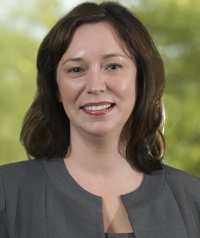Continuing & Professional Education
Certificate Overview| Continuing Education Instructor | Modules | Cost | Enroll
Course Dates
Spring 2024
February 7th-April 16th
Fall 2024
September 18th- November 26th
Certificate Overview
The Certificate in Nonprofit Leadership (CNL) addresses various aspects of leadership that every member of your organization, from on-the-ground volunteers to Executive Directors, face on a daily basis. It offers guidance and strategies on leadership and performance expectations in times of change, strategic management models, the responsibilities of and how to engage volunteer board members, measuring success, and employing situational leadership as a tool to develop team members. Though a faculty instructor guides learners through each educational module, participants also critique articles, listen to lectures, and engage with their cohort to share insight on real-world nonprofit and public service scenarios.
Your experience within our online classroom will be a blend of graduate-level education with an applied perspective to utilize learnings to benefit personal aspirations and organizational professional commitments. The academic content is based on decades of experience from leaders in public administration education and the design reflects what we believe, addresses the most vital current and future competencies for public service leaders.
Continuing Education Instructor

Dr. Tosha Cantrell-Bruce serves as the Continuing Education Instructor of record for the Certificate in Nonprofit Leadership.
Modules
- Week 1 – Leadership in Times of Change
- Week 2 – Performing as a Leader in Times of Uncertainty
- Week 3 – Nonprofit Strategic Management Cycle
- Week 4 – Utilizing Strategic Management to Organize Priorities
- Week 5 – Key Roles and Responsibilities of Nonprofit Board Members
- Week 6 – How to Assess and Improve Board Performance
- Week 7 – Creating a Balanced Scorecard for Mission Advancement
- Week 8 – Sustaining Outcomes and Performance Drivers at Nonprofits
- Week 9 – Understanding the Situational Approach to Effective Leadership
- Week 10 – Using Leader Behaviors to Develop Nonprofit Stakeholders
Cost
- $1499
